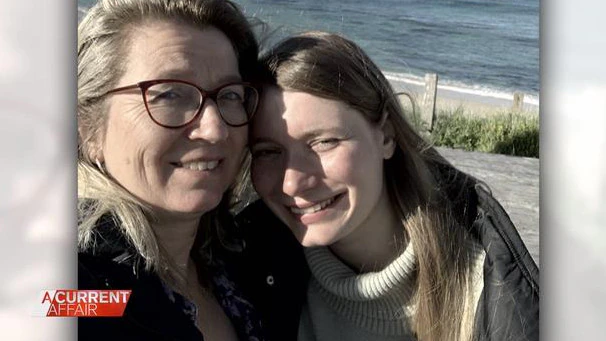Hannah Friebel, 27, who was reportedly in debt to the NDIA for around $27,000, committed suicide, her distraught parents said.
Hannah grew up in Melbourne’s bayside, and her parents said she loved to dance and lit up a room whenever she walked in.

Hannah’s behavior became increasingly erratic as she got older.
According to her mother, Ms Friebel, Hannah would often walk around with a stick and tell her family to carry out certain actions. She was eventually sent to the psychiatric ward due to her condition.
Hannah was eventually diagnosed with bipolar disorder.
She worked as an adjunct lecturer at Melbourne’s Monash University and had lived with this condition for four years before she turned to the national disability insurance scheme for help.
She was eventually provided with financial assistance through a plan-managed program by the NDIA. According to the agency’s website, people can manage their support payments by asking the agency to pay on their behalf or through a third party. Hannah’s mother, Ms Friebel, said she was worried about the system’s performance.
Hannah’s mother said that although she was fine if she was, she was worried about her daughter’s spending habits when she wasn’t feeling well. Some of her purchases included a therapy dog and a variety of food.
The NDIA noticed Hannah’s spending and sent her a letter last September. In the letter, she was informed that she had a total of almost $29,000 in unrecovered expenses. The agency noted that it was required to recover the money. Hannah had initially considered the items she bought to be legitimate expenses, and the letter stated that she would have to pay the balance back.
According to her parents, Hannah spiralled out of control after she received the letter. Her depression and financial problems were triggered by the NDIA’s actions. Mr Friebel said that they had not seen the letter before it was sent. In September, Hannah started taking medicine for her health issues, and by October, she was no longer able to pay the outstanding balance.
Friebel claims that the NDIA kept calling them week after week, asking for a plan to pay the balance. In April, Hannah told her mother that she was going to drive. She failed to return home, and she had previously attempted suicide.
Before Hannah took her own life, NDIA representatives contacted Ms Friebel, and they told her that they would stop chasing the debt. The agency’s actions did nothing to help Hannah’s situation.
The Friebels do not blame the NDIA for Hannah’s death, but they believe that changes to the agency’s procedures could prevent it from happening in the future.

